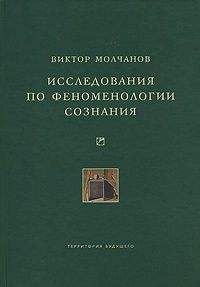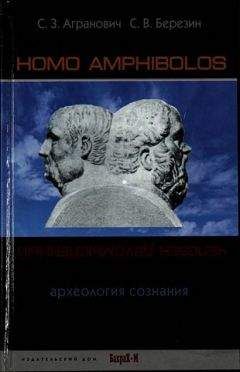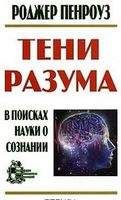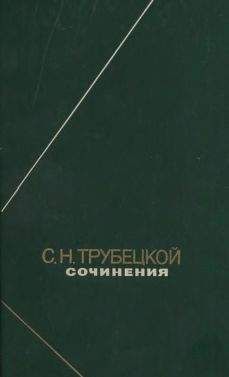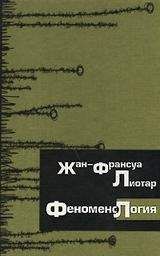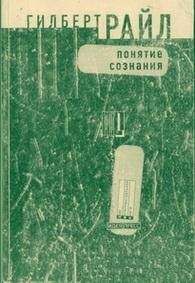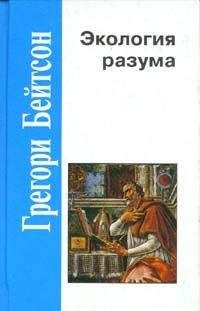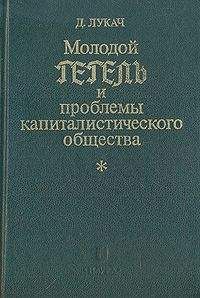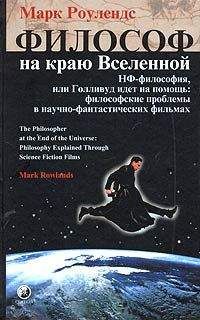Вадим Васильев - Трудная проблема сознания
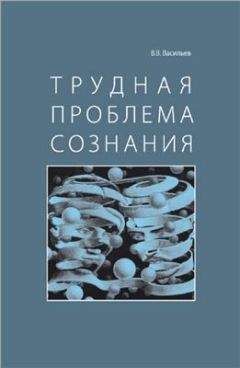
Скачивание начинается... Если скачивание не началось автоматически, пожалуйста нажмите на эту ссылку.
Жалоба
Напишите нам, и мы в срочном порядке примем меры.
Описание книги "Трудная проблема сознания"
Описание и краткое содержание "Трудная проблема сознания" читать бесплатно онлайн.
Книга посвящена обсуждению "трудной проблемы сознания" — вопроса о том, почему функционирование человеческого мозга сопровождается субъективным опытом. Рассматриваются истоки этой проблемы, впервые в четком виде сформулированной австралийским философом Д.Чалмерсом в начале 90-х гг. XX века. Анализируется ее отношение к проблеме сознание — тело и проблеме ментальной каузальности. На материале сочинений Дж. Серла, Д.Деннета, Д.Чалмерса и многих других аналитических философов критически оцениваются различные подходы к загадке сознания. В заключительной части книги автор предлагает собственное видение "трудной проблемы", позволяющее, с его точки зрения, избежать концептуальных тупиков и отдать должное интуициям здравого смысла
Chalmers D. J. The first‑person and third‑person views. P. I. TS 1989. http://consc.net/notes/first‑third.html.
257Chalmers D. J. Consciousness and cognition. TS 1990. hitp://consc. net/papers/c‑and‑c.html.
Chalmers D. J. Toward a Theory of Consciousness. Ph. D. Thesis. TS 1993. Chalmers D. J. Absent qualia, fading qualia, dancing qualia // Conscious Experience, ed. by T. Metzinger. Paderborn, 1995. P. 309–328.
Chalmers D. The puzzle of conscious experience // Scientific American 273 (1995). P. 80–86.
Chalmers D. J. The Conscious Mind: In Search of a Fundamental Theory. N. Y., 1997(1996).
Chalmers D. J. Pacing up to the problem of consciousness // Explaining Consciousness — The "Hard Problem", ed. by J. Shear. Cambridge MA, 1997. P. 930.
Chalmers D. J. Moving forward on the problem of consciousness // Explaining Consciousness — The "Hard Problem", ed. by J. Shear. Cambridge MA, 1997.. P. 379–422,
Chalmers D. J. Availability: the cognitive basis of experience? // The Nature of Consciousness: Philosophical Debates, ed. by N. Block, О. Flanagan, and G. Guzeldere. Cambridge MA, 1997. P 421–424.
Chalmers D. J. On the search for the neural correlate of consciousness // Toward a Science of Consciousness II: The Second Tucson Discussions and Debates, ed. by S. R. Hameroff, A. W. Kaszniak, A. C. Scott. Cambridge MA, 1998. P. 219230.
Chalmers D. J. Materialism and the metaphysics of modality // Philosophy and Phenomenological Research 59(1999). P. 473–493.
Chalmers D. J. What is a neural correlate of consciousness // Neural Correlates of Consciousness: Empirical and Conceptual Questions, ed. by T. Metzinger. Cambridge MA, 2000. P. 17–40.
Chalmers D. J. Consciousness and its place in nature // Philosophy of Mind: Classical and Contemporary Readings, ed. by D. J. Chalmers. N. Y., 2002. P. 247–272.
Chalmers D. J. Ontological anti‑realism. TS 2007. http://consc. net/papers/ontology.pdf.
Chomsky N. A Review of B. F. Skinner's Verbal Behavior // Language 35: 1 (1959). P. 26–57.
Chomsky N. Recent contributions to the theory of innate ideas // Syntheses 17 (1967). P. 2–11.
Chomsky N. Reflections on Language. N. Y., 1975.
Chomsky N. New Horizons in the Study of Language and Mind. Cambridge,
2000.
Chomsky N. Turing on the "Imitation game" // The Turing Test: Verbal Behavior as the Hallmark of Intelligence, ed. by S. Shieber. Cambridge MA, 2004. P. 317–321.
Churchland P. M. Matter and Consciousness. Rev. ed, Cambridge MA, 1988. Churchland P. M. The Engine of Reason, the Seat of the Soul: A Philosophical Journey into the Brain. Cambridge MA, 1996 (1995).
Churchland P. M. Densmore and Dennett on virtual machines and consciousness // Philosophy and Phenomenological Research 59: 3 (1999). P. 763–767.
Churchiand P. M. Knowing qualia: A reply to Jackson (with Postscript 1997) // There's Something About Mary: Esays on Phenomenal Consciousness and Frank Jackson's Knowledge Argument, ed. by P. Ludow, Y. Nagasawa, and D. Stoljar. Cambridge MA, 2004. P. 163–178.
Churchiand P. M. Functionalism at forty: a critical retrospective // Journal of Philosophy 102:1 (2005). P. 33–50.
Churchiand P. S. Can neurobiology teach us anything about consciousness // The Nature of Consciousness: Philosophical Debates, ed. by N. Block, O. Flanagan, and G. Guzeldere. Cambridge MA, 1997. P. 127–140.
Churchiand P. S. The hornswoggie problem // Explaining Consciousness — The "Hard Problem", ed. by J. Shear. Cambridge MA, 1997. P. 37–44.
Churchiand P. S. Brain‑Wise: Studies in Neurophilosophy. Cambridge MA,
2002.
Clarke C. J. S. The nonlocality of mind // Explaining Consciousness — The "Hard Problem", ed. by J. Shear. Cambridge MA, 1997. P. 165–175.
Clarke D. Descartes's Theory of Mind. Oxford, 2003.
Cole D. The Chinese Room Argument: Entry in the Stanford Encyclopedia of Philosophy 2004 http://plato.stanford.edu/entries/ chinese‑room.
Colvin M., Gazzaniga M. Split‑brain cases // The Blackwell Companion to Consciousness, ed. by M. Velmans and S. Schneider. Maiden, 2007. P. 181–193.
Corcoran K. J. The trouble with Searle's biological naturalism // Erkeimtnis 55:
3 (2001). P. 307–324.
Crane T. Mental causation. TS 2003.
Crane T. Intentionalitat als Merkmal des Geistigen: Sechs Essays zur Philosophie des Geistes. Frankfurt am Main, 2007,
Crick F. The Astonishing Hypothesis: The Scientific Search for the Soul. N. Y., 1995(1994).
Crick F, Koch C. Towards a neurobiological theory of consciousness // The Nature of Consciousness: Philosophical Debates, ed. by N. Block, O. Flanagan, and G. Guzeldere. Cambridge MA, 1997. P. 277–292.
Dahlbom B. (ed.) Dennett and His Critics: Demystifying Mind. Maiden, 1993. Damasio A. Looking for Spinoza: Joy, Sorrow, and the Feeling Brain. Orlando,
2003.
Davidson D. Mental events // The Nature of Mind, ed. by D. Rosenthal. P. 247256.
Dawklns R. The Selfish Gene. Oxford, 1999 (1976).
Dehaene S., Naccache L. Toward a cognitive neuroscience of consciousness: basic evidence and a workspace framowork // Cognition 79(2001). P. 1–37.
Dennett D. C. Content and Consciousness. L., 1986 (1969).
Dennett D. C. Brainstorms: Philosophical Essays on Mind and Psychology. Cambridge MA, 1981 (1978).
Dennett D. C. The Intentional Stance. Cambridge MA, 1987.
Dennett D. C. Consciousness Explained. Boston, 1991.
Dennett B. C. Darwin's Dangerous Idea: Evolution and the Meanings of Life. L, 1995.
Dennett D. C. An overview of my work in philosophy. TS 1996.
Dennett D. С Facing backwards on the problem of consciousness // Explaining Consciousness — The "Hard Problem", ed. by J. Shear. Cambridge MA, 1997. P. 3336.
Dennett D. C. Brainchildren: Essays on Designing Minds. L., 1998.
Dennett D. C. Re‑Introducing The Concept of Mind // Ryle G. The Concept of Mind. Chicago, 2002. P. VII‑XVII.
Dennett D. С Freedom Evolves. L., 2004 (2003).
Dennett D. C. Sweet Dreams: Philosophical Obstacles to a Science of Consciousness. Cambridge MA, 2005.
Dennett D. C. Interview conducted by Bill Uzgalis in Boston, Massachusetts on December 29, 2004 // Mind and Machines 16:1 (2006). P. 7–19.
Dennett D. C. Two steps closer to consciousness // Paul Churchland, ed. by B. Keeley. N. Y., 2006. P. 193–209.
Dennett D. С Intentional systems theory. TS 2007.
Dennett D. C, Akins K. Multiple drafts model // Scholarpedia 3:4 (2008). P.
4321.
Dokic J. La philosophie de l'esprit // Precis de philosophie analytique, dir. par P. Engel. Paris, 2000. P. 35–62.
Dreyfus H. L., Dreyfus S. E. Mind over Machine: The Power of Human Intuition and Expertise in the Era of the Computer. N. Y., 1988 (1986).
Dummett M. Origins of Analytical Philosophy. Cambridge MA, 1993.
Ebert J. J. Unterweisung in den philosophischen und mathematischen Wissenschaften fur die obern Classen der Schulen und Gymnasien. 4 Aufl. Lpz., 1796. S. 593.
Edelman G. Wider than the Sky: The Phenomenal Gift of Consciousness. L.,
2004.
Edelman G., Tononi G. A Universe of Consciousness: How Matter Becomes Imagination. N. Y., 2000.
Elitzur A. Consciousness and the incompleteness of the physical explanation of behavior // Journal of Mind and Behavior 10 (1989). P. 1–20.
Elitzur A. Consciousness makes a difference: Reluctant dualist's confession. TS
2005.
Elitzur A. Why quantum mind to begin with: A proof for the incompleteness of the physical account of behavior // Quantum Mind — Salzburg 2007. P. 8–9.
Elton M. Daniel Dennett: Reconciling Science and Our Self‑Conception. Cambridge, 2003.
Faigenbaum G. Conversations with John Searle. LibrosEnRed 2003.
Feigl G. Logical analysis of the psychophysical problem: A contribution of the new positivism // Philosophy of Science 1: 4 (1934). P. 420–445.
Feigl G. The "Mental" and the "Physical": The Essay and a Postscript. Minneapolis, 1967.
Feinberg T. E. Altered Egos: How the Brain Creates the Self. N. Y., 2001.
Feyerabend P. Mental events and the brain // The Nature of Mind, ed. byD. Rosenthal. N. Y., 1991. P 266–267.
Fisher J. Why nothing mental is just in the head //Nous 41 (2007). P. 318–334.
Flanagan O. Consciousness Reconsidered. Cambridge MA, 1992. Flanagan O. Conscious inessentialism and the epiphenomenalism suspiction // The Nature of Consciousness: Philosophical Debates, ed. by N. Block, O. Flanagan, and G. Guzeldere. Cambridge MA, 1997. P. 357–373.
Flanagan O. The Problem of the Soul: Two Visions of Mind and How to Reconcile Them. N. Y., 2002.
Fodor J. The mind‑body problem // Scientific American 244 (1981). P. 114125.
Fodor J. The Modularity of Mind. Cambridge MA, 1983. Fodor J. A Theory of Content and Other Essays. Cambridge MA, 1990. Fodor J. The Mind Doesn't Work That Way: The Scope and Limits of Computational Psychology. Cambridge MA, 2001 (2000).
Foster J. The Immaterial Self: A Defence of the Cartesian Dualist Conception of the Mind. L., 1996(1991).
Gallagher S. Where's the action? Epiphenomenalism and the problem of free will // Does Consciousness Cause Behavior? Ed. by S. Pockett, W. P. Banks and S. Gallagher. Cambridge MA, 2006. P. 109–124.
Gibbons J. Mental causation without downward causation // Philosophical Review 115: 1 (2006). P. 79–103.
Goschke Т., Walter H. Bewusstsein und Willensfreiheit — Philosophische und empirische Annaherungen // Bewusstsein. Phi‑losophie, Neurowissenschaften, Ethik, hrsg. v. С S. Hermann, M. Pauen, J. W. Rieger und S. Schicktanz. Paderborn, 2005. S. 81-119.
Gray J. Consciousness: Creeping Up on the Hard Problem. N. Y., 2006(2004).
Green J. В., Palmer S. L. (eds) In Search of the Soul: Four Views of the Mind- Body Problem. Madison, 2005.
Guzeldere G. The many faces of consciousness: A field guide // The Nature of Consciousness: Philosophical Debates, ed. by N. Block, O. Flanagan, and G. Guzeldere. Cambridge MA, 1997. P. 1–67.
Hagan S., Hameroff S., Taszynski J. Quantum computation in brain microtubules: Decoherence and biological feasibility // Physical Review E 65 061901 (2002).
Hameroff S., Penrose R. Orchestrated objective reduction of quantum coherence in brain microtubules: The "Orch OR" model for consciousness // Toward a Science of Consciousness, ed. by S. Hameroff, A. Kaszniak and A. Scott. Cambridge MA, 1996. P. 507–540.
Hameroff S. Quantum computation in brain microtubules? The Penrose- Hameroff "Orch OR" model of consciousness // Philosophical Transactions: Mathematical, Physical and Engineering Sciences 356: 1743(1998). P. 1869–1896.
Hameroff S. The good, the bad and the octopus // Journal of Consciousness Studies 14: 8 (2007). P. 105–109.
Hampshire S. The analogy of feeling // The Nature of Mind, ed. by D. Rosenthal. N. Y., 1991. P. 98–103.
Hansen С. М. Between a rock and a hard place: Mental causation and the mind- body problem // Inquiry 43: 4 (2000). P. 451–491.
Hamad S. Grounding symbols in the analog world with neural nets: A hybrid model // Think 2 (1993). P. 12–20.
Hamad S. Minds, machines, and Searle 2: what's right and wrong about the Chinese Room Argument // Views into the Chinese Room: New Essays on Searle and Artificial Intelligence, ed. by J. Preston and M. Bishop. N. Y., 2002. P. 294–307. Hasker W. The Emergent Self. Ithaka, 2001 (1999).
Hauser L. Searle's Chinese Box: The Chinese Room Argument and Artificial Intelligence. Ph. D. Thesis. 1993. El. ed. http://members. aol.com/wutsamada/disserta.html.
Hawkins J., Blakeslee S. On Intelligence. N. Y., 2004.
Heidelberger M. Wie das Leib‑Seele Problem in den logischen Empirismus kam // Е — Journal Philosophie der Psychologie. 2 (2005). http://www.jp.philo.at/texte/HeidelbergerMl.pdf.
Heil J. Mental causation // The Blackwell Guide to Philosophy of Mind, ed. by S. P. Stich and T. A. Warfield. Maiden, 2003. P. 214–234.
Herrmann C. S., Pauen M., Mm В. К., Busch N. A., Rieger J. W. Eine neue Interpretation von Libets Experimenten aus der Analyse einer Wahlreaktionsaufgabe // Bewusstsein. Philosophie, Neurowissen‑schaften, Ethik, hrsg. v. C. S. Hermann, M. Pauen, J. W. Rieger und S. Schicktanz. Paderborn, 2005. S. 120–134.
Hissmann M. Psychologische Versuche. Em Beitrag zur esoteri‑schen Logik. Frankfurt am Main., 1777.
Hodgson D. The Mind Matters: Consciousness and Choice in a Quantum World. N. Y., 1991.
Hodgson D. The easy problems ain't so easy // Explaining Consciousness — The "Hard Problem", ed. by J. Shear. Cambridge MA, 1997. P. 125–131.
Hofstadter D., Dennett D. The Mind's I: Fantasies and Reflections on Self and Soul. N. Y., 2000 (1981).
Hofstadter D. I am a Strange Loop. N. Y., 2007.
Hogan T. Supervenient qualia // The Philosophical Review 96: 4 (1987). P. 491–520.
Horowitz A. Is there a problem in physicalist epiphenomenalism? // Philosophy and Phenomenological Research 59: 2 (1999). P. 421–434.
Humphrey N. How to solve the mind‑body problem // Journal of Consciousness Studies 7 (2000). P. 5–20.
Humphrey N. Seeing Red: A Study in Consciousness. Cambridge MA, 2006. Huxley T. On the hypothesis that animals are automata, and its history // Fortnightly Review (November 1874). P. 555–580.
Jackendoff R. Consciousness and the Computational Mind. Cambridge MA,
1987.
Jackson F. Epiphenomenal qualia // There's Something About Mary, ed. by P. Ludow, Y. Nagasawa, and D. Stoljar. Cambridge MA, 2004. P. 39–50.
Jackson F. From Metaphysics to Ethics: A Defence of Conceptual Analysis. N. Y., 1998.
Jackson F, Mind and illusion // There's Something About Mary, ed. by P. Ludow, Y. Nagasawa, and D. Stoljar. Cambridge MA, 2004. P. 421–442.
James W. Are we automata? // Mind 4 (1879). P. 1–22.
Kant 1. Gesammelte Schriften. Akademie‑Ausgabe. В., 1900ff.
Kenny A. The Metaphysics of Mind. Oxford, 1989.
Kim J. Epiphenomenal and supervenient causation // The Nature of Mind, ed. byD. Rosenthal. N. Y., 1991. P. 257–285.
Kim J "Strong" and "global" supervenience revisited // Supervenience and Mind: Selected Philosophical Essays, ed. by J. Kim. Cambridge, 1993. P. 79–91.
Kim J. Mental causation in Searle's "biological naturalism" // Philosophy and Phenomenological Research 55; 1 (1995). P. 189–194.
Kim J. The mind‑body problem: Taking stock after forty years // Philosophical Perspectives 11 (1997). P. 185–207.
Kim J. Mind in a Physical World. Cambridge MA, 1998.
Kim J. Physicalism, or Something Near Enough. Princeton, 2005.
Kim J. Philosophy of Mind. Cambridge MA, 2006.
Kim J. The Causal efficacy of consciousness // The Blackwell Companion to Consciousness, ed. by M. Velmans and S. Schneider. Maiden, 2007. P. 406–417.
King P. Why isn't the mind‑body problem medieval // Forming the Mind: Essays on the Internal Senses and the Mind/Body Problem from Avicenna to the Medical Enlightenment, ed. by H. Lagerlund. Dordrecht, 2007. P. 187–206.
Подписывайтесь на наши страницы в социальных сетях.
Будьте в курсе последних книжных новинок, комментируйте, обсуждайте. Мы ждём Вас!
Похожие книги на "Трудная проблема сознания"
Книги похожие на "Трудная проблема сознания" читать онлайн или скачать бесплатно полные версии.
Мы рекомендуем Вам зарегистрироваться либо войти на сайт под своим именем.
Отзывы о "Вадим Васильев - Трудная проблема сознания"
Отзывы читателей о книге "Трудная проблема сознания", комментарии и мнения людей о произведении.








